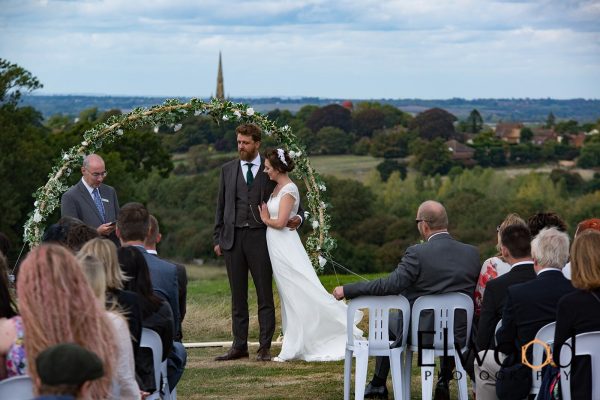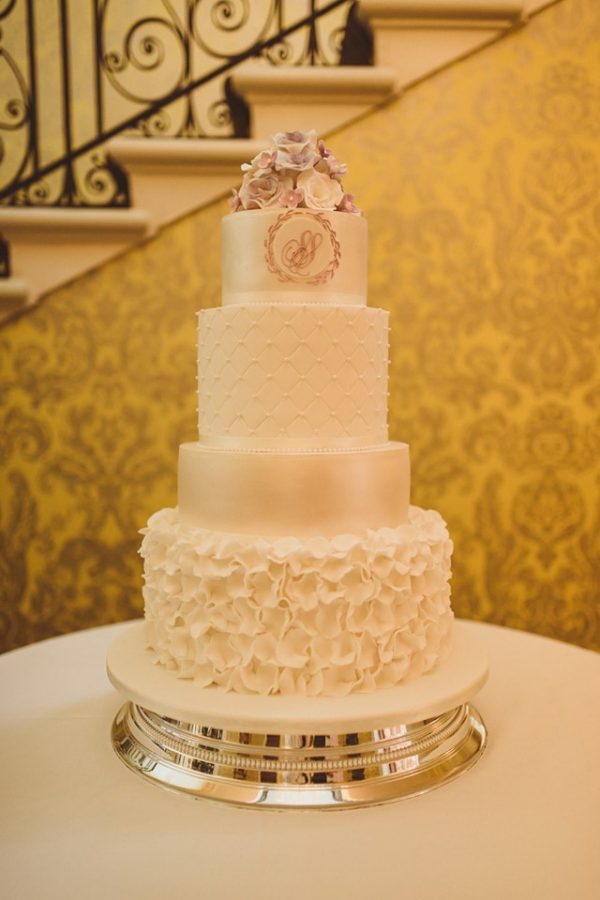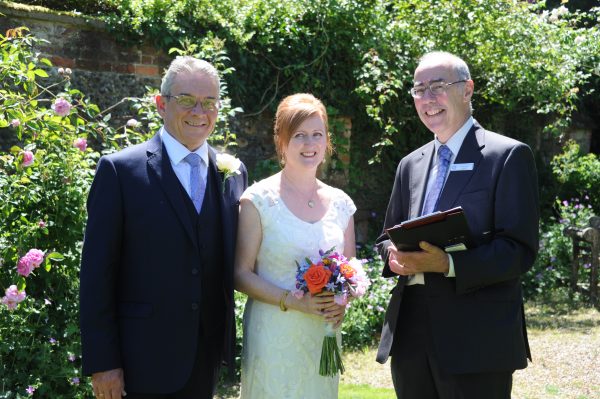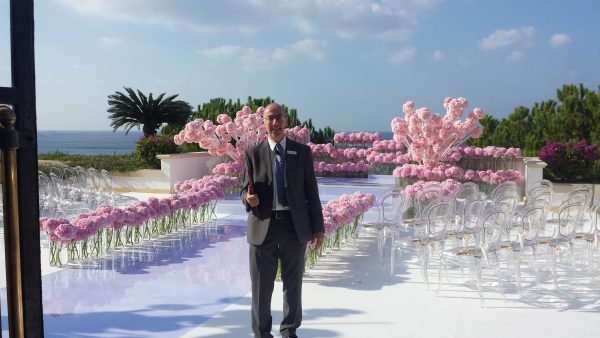
by Michael | Jan 13, 2020 | Blog
We were
lucky with our wedding venue. A year or so before our wedding, my wife and I
were invited to a celebration dinner at the Grim’s Dyke, Old Redding. We fell
in love with the place, and choosing our wedding venue proved to be ‘no contest’.
There are those who may get a helping hand from other people’s recommendations, but most have to start from a blank slate.
That usually
means trawling through websites. Naturally, the pictures are flattering and the
descriptions are tantalising, but don’t rely on those alone.
Contact the wedding planner by phone or (less good) e-mail. You’ll have questions, and they should be able to answer them. If the answers don’t meet your needs or wishes, then go elsewhere.
Questions
However, if possible, make an appointment and pay a visit.
That way,
you’ll meet the planner and get a feel for them. Obviously, you need to know if
the date you want is available.
Are they
going to be with you on the day, or will somebody unknown take over? Does the
planner seem willing to listen to your vision and plans? Do they seem excited?
What will you
get for your money? Does the price seem extortionate? (More on costs later.)
What are the payment terms?
Can the planner recommend a celebrant (if that’s what you want)? Can you see the room(s) you’ll be using?
You will
probably want to discuss refreshments, catering and service, as well as
eventuality-planning (what happens if the weather is bad?).
Decisions
You must follow your head (if you have a strict budget, then you may have to reject the venue), but you must always follow your heart. If you arrive at a venue and both love it (like we did with the Grim’s Dyke), then go for it. Don’t select a place just because you can afford it. This is probably going to be the biggest day of your life, so the venue and atmosphere is very important. You will want to remember the day for the rest of your lives, so the memory will have to be highly positive!
Money
If you feel
that you can’t afford the price, there are some strategies you can try. Why not
suggest hiring the venue Monday-Thursday? Those can be quieter times, and the
planner will be glad to fill the place then.
Equally, if
you go for a date that is outside the peak summer (and Xmas and Valentine’s
Day), you may also be able to negotiate with the planner. Same reasons. And
hiring the place for the afternoon, rather than the evening, may bring down the
price.
If you don’t
ask, you’ll never find out!
So, see what
you can do – you may be able to secure a bargain! At all events, make sure you
both absolutely want to marry there.
For further
suggestions, feel free to contact me.

by Michael | Nov 25, 2019 | Blog
A wedding clearly takes a lot of planning and thought. When I got married, we managed to infuriate my aunt by altogether forgetting to invite her. She just got overlooked (no malice intended) and was justifiably miffed when she found out.
The guest
list is not the only way to annoy your guests. Here are just seven other ways:
- When you send the invitations out, be as unclear as possible. Don’t spell out who exactly you are inviting (is plus one invited, or are the children?). Explain that there are various stages of the ceremony, but don’t actually specify what happens when, or who is invited to what.
- If you are holding your ceremony outdoors, ensure there is minimal, or no, shelter from the elements. People love sunburn almost as much as being soaked or frozen.
- Invite your guests to keep their phones on and to take photos throughout the ceremony, even if you are paying a photographer to do the job. The more guests that can block other people’s view by holding their phone in the air, the better.
- Have no thought for the audibility of the event. Nobody actually wants to hear what the celebrant – or couple – are saying, do they?
- Ensure there is plenty of “dead” time between the ceremony and, say, the canapes. The couple may go off and sign a certificate or have photos taken, but don’t let the guests know. It’s even more effective if nobody can tell anybody what’s meant to be happening. Oh, you get bonus points if guests are hungry and thirsty, but have no idea when the refreshments are served.
- The seating plan is a wonderful way to get even with people. You can “innocently” seat someone with their ex, or place enemies next to each other. Very rewarding.
- When presenting a speech, cramming it with in-jokes, preferably, about one side of the family only, is very satisfying and can exclude surprisingly large swathes of your guests.
Please don’t
feel that this list is comprehensive. There are other ploys you can use very
successfully. Perhaps you can think of a few?
I’d better point out that this list is delivered tongue-in-cheek! Should you choose to honour, entertain and please your guests, of course these are what you should strive to avoid.
If you want to chat about a dream, rather than a nightmare, ceremony, then please get in touch with me.
Photo: courtesy Matt Penberthy

by Michael | Nov 11, 2019 | Blog
People sometimes think the civil celebrant cost for a ceremony is not justified. Uncle John can do that just as well – and for free!
But will Uncle John be able to put together – let alone present – a ceremony that is memorable (for the right reasons)? Does he have the writing and presentation skills, for example?
A lot of people think that all a civil celebrant has to do is to rock up at the ‘gig’ and deliver a few well-chosen words and then go home. Money for old rope, as they say.
However, it’s actually a lot more than that for me.
The ideal
My mission
is to cultivate a relationship between myself and the client. I want them to
trust me and feel there’s rapport. That’s especially important if I’m going to
be conducting their ceremony on the most important day of their lives!
I make it my goal when we meet to ask the right questions and actually listen to the responses. Then I can understand the clients’ vision and be in a position to help them realise it.
I compile a ceremony that reflects their personalities and beliefs and which is everything they want.
I take pride
in conducting an impeccable ceremony.
Finally, I appreciate that I am privileged to be part of the couple’s excitement and joy.
How do I achieve that?
Firstly,
cultivating a close relationship takes time, as well as patience and tact. (I
do not end up working with every person who enquires about my services.)
I don’t
assume I know the clients’ wishes better than they do. I will advise them, if I
feel, from my considerable experience, that something might, or might not,
work; however, it is their big day, and I never forget that.
I am happy
to give advice, if the clients are unsure what to do. The goal is to draw up a unique,
personalised ceremony that fulfils the clients’ dreams.
Either way,
we normally exchange drafts until the clients are happy with every word.
I always bear in mind that it’s not about me, but the clients. I present clearly and beautifully. I won’t accept second best.
The bottom line
I trained
both as a funeral celebrant and as a celebratory celebrant, and that training
was not cheap.
I have considerable experience – I graduated as a celebrant in late 2012 and have now conducted over 150 ceremonies (including weddings (same-sex and heterosexual), vow renewals, handfastings, namings and funerals). It’s difficult to put a price on such experience.
My many
testimonials demonstrate that I am professional but friendly, and focussed on achieving
my clients’ goals.
On the day,
I will normally arrive an hour early. I check everything is in place at the
venue and reassure the groom! I am a calming influence at a frenetic time.
When I
conduct the ceremony, I use my considerable presentation skills. I foster a
warm atmosphere and make the guests feel included too. Such skills come at a
price.
All this is why I charge a fee. if you try me, I hope you’ll agree that I do earn it!

by Michael | Oct 21, 2019 | Blog
Yum! You’ll
be licking your lips at the prospect of this blog, after reading the title!
Well, I’ll
try and keep it light, but it’s an important area.
As far as legal registration is concerned, we’re only talking about births, deaths and weddings. You don’t need any paperwork to celebrate a Vow Renewal or handfasting.
With births,
the registration is almost always done at the hospital (although I realise that
not everybody has their baby there). For deaths, the doctor (either at home or,
again, at the hospital) usually provides the death certificate, and you take it
to the local Register Office.
With
weddings it’s a little more complex.
Religious weddings
If the wedding is conducted in an Anglican church or synagogue, or according to the Quaker service, then there is normally a member of the church (etc.) present who is a registrar. They will ensure the legalities are carried out.
If you’re
having a marriage anywhere else, then things are different. That’s where it
gets more complicated!
Register Office
You need to register your intention to marry at least 28 days in advance. Then you go to the Register Office (by appointment) with two witnesses, and can get legally married. The ceremony will be totally secular and fairly standardised (so next-to-nothing to differentiate one service from the next).
You don’t necessarily have to go to the Register Office. Legislation is going to change, but for now, provided the wedding venue has four solid walls and a roof (basically), the registrars can come out to the venue and conduct the wedding for you there. (This will cost several hundred pounds more than attending the Register Office.)
Another alternative
You can have a civil celebrant-led ceremony. This may allow you a religious (or partially-religious) or a secular ceremony – but the choice is ultimately yours. The big thing – setting this option out from the other two – is that you can have the ceremony of your dreams. Why? Because the celebrant should work with you in advance to respect and enable your vision. It’s all about personalising, rather than following a standard rubric. That means your ceremony will be unique, and can reflect your personalities and beliefs.
The downside
is that (again, there is new legislation in the air for England & Wales)
currently a civil celebrant’s ceremony has no legal validity. So you still have
to have the Registrar-led ceremony (either in their office or at your chosen
venue, if it’s suitable) in addition.
Either way,
once you’re legally married, you can have the dream ceremony, conducted by the
celebrant, afterwards. To all intents and purposes, that will be your real
wedding!
Hopefully, not so painful, was it? But if you have any questions, please feel free to ask me.
Photo: Matt Penberthy

by Michael | Oct 14, 2019 | Blog
I was recently interviewed by a newspaper reporter. Fame at last, I hear you say! However, she was a trainee, and was merely getting in some practice!
However, she asked three questions in particular which seemed worth repeating, so I’ll answer them again in today’s blog.
What is a civil celebrant?
A civil celebrant works with the client to create a totally personalised ceremony, which they then conduct. This could be a wedding, vow renewal, handfasting, naming ceremony, or whatever is required.
Depending on
the type of celebrant, the ceremony can be religious, part-religious or
non-religious.
The celebrant is not normally obliged to produce a standard ceremony. It can be personalised and, thus, unique.
Note that a celebrant-led wedding does not have legal validity in England & Wales (at present), so registrars are still required.
Why are civil ceremonies becoming
increasingly popular?
Probably
because not everyone wants a full religious service. At the other extreme, a
Register Office ceremony is fairly standardised and, of course, completely
secular.
For those who want a hint of religion only, what the civil celebrant offers is ideal.
There are
some (Catholic divorcees, for example) who might welcome a full religious
service and are denied it by the Church, so they can go to a (non-humanist)
civil celebrant.
Others are happy with a secular ceremony, but want something unique (which the Register Office doesn’t offer).
Tell us about some of your unique
experiences and ceremonies
I’ve conducted over 150 ceremonies, and most stick in the mind (usually for good!).
I think two ceremonies are particularly memorable, though.
Firstly, I conducted a September wedding in Cyprus. This involved me reading a couple of paragraphs in Russian (I have a Modern Languages degree, so this wasn’t the hardship it may appear!). The venue was a 5-star hotel, full of flowers, overlooking the sea. A ravishing setting.
However, I also remember the bride. It is understandable that she wanted perfection on her big day, but she came across – at least! – as OCD. Before she employed me, she interviewed me (and sent her parents a recording of me reading Russian). She consistently made unreasonable demands on her groom, humiliating him even in front of suppliers. (If I had been him, I wouldn’t have married her!)
However, she
came up smelling of roses on the day, and it was a fabulous event.
My other favourite was a contrasting occasion. This was also in the open air, much lower-budget, during a very wet January near Salisbury (Old Sarum). The groom was half-Jewish and the bride pagan, and elements of both religions were combined in the service.
Apart from
the setting and the intrinsic interest of the mixed-faith rituals, the weather
was notable. The night before, I had driven through torrential rain for a
couple of hours to reach my hotel. When I drove back after the ceremony, I had
to pass through a severe thunderstorm.
On the morning itself, I arrived early to set up. Unfortunately, the couple were marrying at the Register Office in Salisbury and got caught in a terrible traffic jam, delaying them the best part of an hour. I therefore had to stay on the hilltop for a couple of hours unprotected, at the mercy of the elements. Amazingly, it was quite mild and even stayed dry!
After my moment in the spotlight, I guess it’s just a matter of time before that call comes in from “The Times”!




